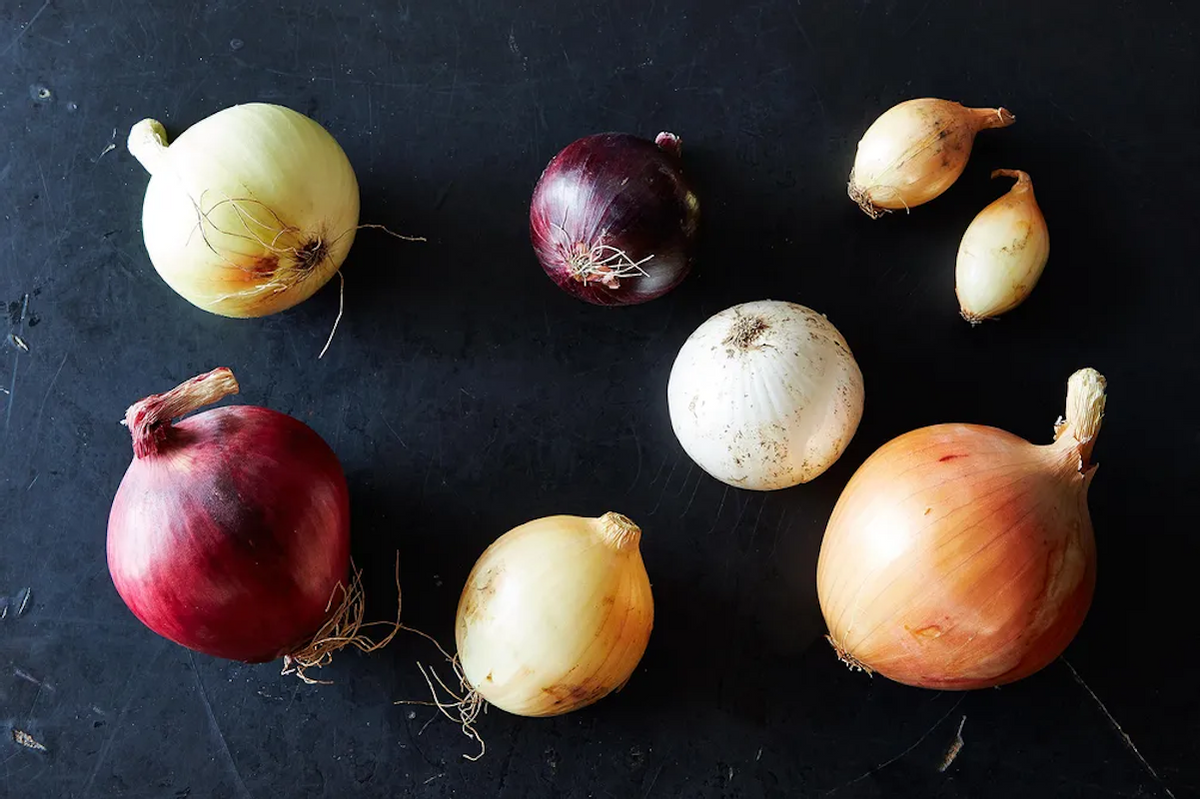The unfailing way to make any onion last forever

While I enjoy a nice, cathartic cry every now and then, onion tears are not that; they’re painful. They sting and burn, and to make matters worse, you’re holding a sharp knife, so don’t you dare rub your eyes. It doesn’t matter if you’re slicing, dicing, or mincing, it all hurts. When fresh onions are cut, they release a sulfuric gas that causes tears to stream down your face; the older the onion is, the stronger the gas is and therefore, the more heartbreak you’ll experience. There are numerous old wives tales about how to stop yourself from crying while cutting onions and only some of them work.
No one wants to drag out time when chopping onions, which is why it pains me to tell you that you need to chop the whole dang onion. Seriously. Chopping and freezing whole onions will extend the life of fresh onions, rather than only cutting and using what you need. Plus, you’ll get a head start on meal prep and will ultimately save yourself time and money (eliminating food waste is always a win).
If you’re caramelizing a panful, frying up some rings, or trying out one of your other favorite onion-forward recipes, that makes sense. But even if you just need a handful to season your frittata, or add a snap to your salad, you should still power through. Because those of us who have thrown the unused onion half in the crisper drawer knows it’s just in purgatory before it moves to the trash.
But you should cut the whole onion, use what you need, and freeze the rest in a Ziploc bag. Yes, you heard that right. You can freeze chopped onions!
You don’t need to do anything special to freeze onions: Just dump the leftovers into an airtight freezer-friendly bag, flatten it into a single layer, and squeeze every last molecule of air out of there. If you’re really concerned about your onions sticking together, you can freeze them for two hours or so in a single layer on a shallow baking sheet before transferring them in a container. This will prevent the chopped onion from forming clumps, making it easier to cook with and re-incorporate into whatever you’re cooking next. Like most frozen vegetables, the raw onions will last 6 months or more in the freezer — just make sure to label and date them so you don’t forget!
I first started freezing onions years ago when I over-estimated how quickly I could go through an extra-large bag of Vidalias. I complained to my mom about how the sharp, sweet smell was perfuming my kitchen and living room, and she suggested slicing and saving them in the freezer. It blew my mind and since then, I’ve always had a stash on hand for stir-frys, soups and stews, or chili.
Now, if you want to enjoy onions raw (like in a salad or guacamole), freezing is a no-go. Also, defrosted onions can get a little watery, so it’s best not to rely on them for caramelizing. The extra moisture content will prevent them from ever getting super sweet and golden brown. Frozen onions are better suited to cooked dishes that are stewy, like braises or sauces, or recipes that require them to be processed, like veggie burgers.
Here, we’ve gathered a few of our tear-free favorite ways to cook with frozen onions. You’ll find recipes for homemade falafels, meatloaf, ragu sauce, home fries, Martha Stewart’s always-popular one-pan pasta, and cheese-stuffed burgers.

